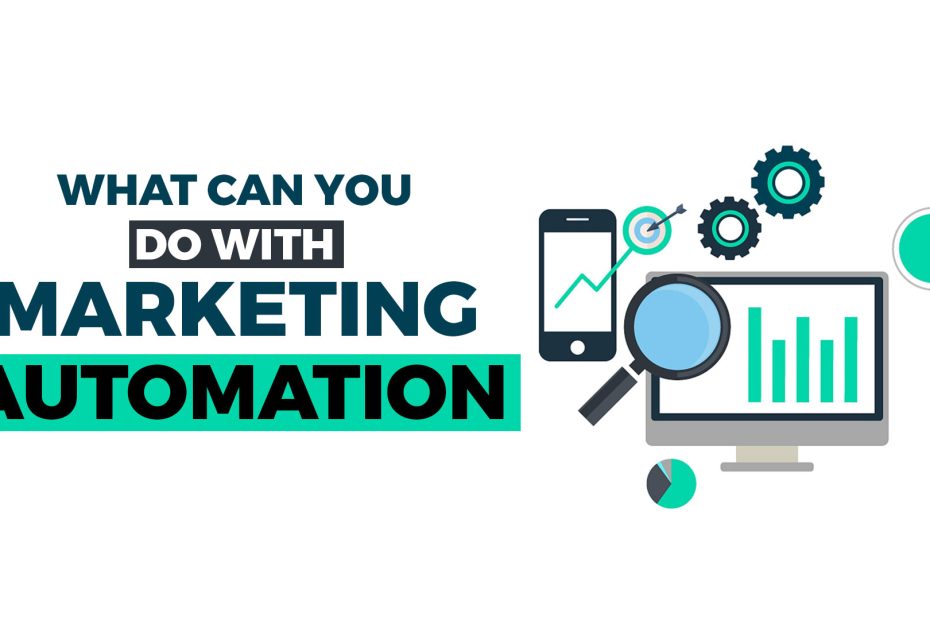In the current era, business sector is constantly seeking ways to optimize their marketing efforts and enhance customer engagement. Marketing automation strategy has emerged as a game-changing solution, empowering organizations to automate repetitive tasks, personalize customer interactions, and achieve unprecedented efficiency. In this article, we will delve into the world of marketing automation, exploring its multifaceted functionalities, and shedding light on the question, “What can you do with marketing automation?” and marketing automation strategy.
A brief overview of marketing automation:
Marketing automation refers to the use of technology and software to automate and streamline marketing tasks and processes, enabling businesses to deliver personalized and targeted messages to their audience. It involves utilizing tools and platforms that automate repetitive tasks, such as email marketing, lead nurturing, social media management, and customer segmentation, allowing marketers to focus on strategic initiatives and improving overall efficiency.
Here is a Business Automation Training that will transform your automation skills to the next level. Buy Now
Importance of Automation in today’s digital landscape
Automation has become increasingly important in today’s digital landscape due to the rapidly evolving technological advancements and the growing complexity of marketing and business operations. Here are some key reasons highlighting the significance of automation:
- Efficiency and Time Savings
- Scalability and Consistency
- Personalization and Customer Experience
- Data-Driven Decision Making
- Enhanced Marketing Performance
- Integration and Collaboration
- Competitive Advantage
Automation has become essential in today’s digital landscape. It offers numerous benefits, including increased efficiency, scalability, personalized experiences, data-driven decision making, enhanced marketing performance, improved collaboration, and a competitive edge. By embracing automation, businesses can navigate the complexities of the digital era, optimize their operations, and drive growth in a rapidly evolving market.
Significance of Marketing Automation
Improved Efficiency:
Marketing automation eliminates the need for manual execution of marketing tasks, saving time and resources. It enables marketers to automate repetitive processes, such as sending emails, managing social media posts, and analyzing campaign performance, resulting in increased efficiency and productivity.
Enhanced Lead Generation:
Marketing automation provides powerful lead generation capabilities. By capturing and nurturing leads through automated workflows, businesses can effectively identify and engage with potential customers, increasing the chances of conversion and revenue generation.
Personalized Customer Experiences:
With marketing automation, businesses can deliver personalized and relevant messages to their target audience. By leveraging customer data and segmentation, marketers can create tailored content, offers, and campaigns that resonate with individual preferences, fostering stronger customer relationships and loyalty.
Streamlined Sales and Marketing Alignment:
Marketing automation enables better collaboration and alignment between sales and marketing teams. By automating lead scoring, nurturing, and tracking, marketers can provide sales teams with qualified leads and valuable insights, enabling more targeted and effective sales efforts.
Data-Driven Decision Making:
Marketing automation platforms offer robust analytics and reporting capabilities, providing valuable insights into campaign performance, customer behavior, and ROI. This data-driven approach allows marketers to make informed decisions, optimize strategies, and continuously improve marketing efforts.
Scalability and Growth:
As businesses expand and customer bases grow, marketing automation becomes essential for managing and engaging with a larger audience effectively. Automation tools enable businesses to scale their marketing efforts without compromising quality or efficiency, supporting sustainable growth and success.
Overcoming Challenges in Marketing Automation
While marketing automation offers numerous benefits, implementing and managing it effectively can come with its own set of challenges. Recognizing and addressing these challenges is crucial for maximizing the potential of marketing automation. Here are some common challenges in marketing automation and strategies to overcome them:
Lack of Strategy and Planning:
Challenge: One of the primary challenges is implementing marketing automation without a clear strategy or plan in place. Without a well-defined strategy, businesses may struggle to align automation with their goals and objectives.
Solution: Start by outlining clear objectives and defining your target audience. Develop a comprehensive strategy that includes segmenting your audience, mapping customer journeys, and identifying key touchpoints. This strategic foundation will guide your automation efforts and ensure alignment with your overall marketing goals.
Insufficient Data Quality and Integration:
Challenge: Marketing automation relies on accurate and high-quality data. Incomplete or inaccurate data can hinder the effectiveness of automation campaigns and lead to poor results. Moreover, integrating data from various sources can be challenging, especially when dealing with legacy systems.
Solution: Invest in data cleansing and verification processes to ensure data accuracy and completeness. Regularly update and maintain your customer database. Implement data integration solutions to connect different systems and consolidate data sources. This integration will provide a unified view of customer information and enable more effective automation workflows.
Inadequate Content and Personalization:
Challenge: Marketing automation thrives on delivering personalized and relevant content to customers. However, businesses may face challenges in creating sufficient content and personalizing it at scale. Generic or irrelevant content can lead to lower engagement and conversion rates.
Solution: Develop a content strategy that includes creating a variety of content formats, such as blog posts, videos, and infographics, tailored to different stages of the customer journey. Leverage automation tools to dynamically personalize content based on customer preferences, behaviors, and demographics. Use customer data and segmentation to deliver targeted and timely messages that resonate with your audience.
Lack of Automation Expertise and Training:
Challenge: Implementing marketing automation requires expertise in both technology and marketing. Without proper training and knowledge, businesses may struggle to fully utilize the capabilities of automation platforms, leading to underutilization and suboptimal results.
Solution: Invest in training and development programs to upskill your marketing team in automation technologies and strategies. Consider partnering with experts or hiring professionals with experience in marketing automation. Regularly evaluate new features and updates in your automation platform and provide ongoing training to keep your team up to date with the latest best practices.
Ineffective Lead Nurturing and Scoring:
Challenge: Lead nurturing and scoring are essential components of marketing automation. However, businesses may struggle to develop effective nurturing campaigns and define accurate lead scoring criteria, resulting in missed opportunities and inefficient lead management.
Solution: Develop a lead nurturing strategy that includes creating relevant and engaging content for each stage of the buyer’s journey. Implement lead scoring models that align with your business objectives and use data-driven insights to refine your scoring criteria. Regularly review and update your nurturing campaigns and scoring models based on feedback and performance metrics.
Lack of Continuous Optimization and Testing:
Challenge: Marketing automation requires continuous optimization and testing to improve campaign performance. Failing to analyze and optimize campaigns over time can limit the effectiveness of automation efforts.
Solution: Implement a culture of continuous testing and optimization. Conduct A/B testing on different elements of your automation campaigns, such as subject lines, call-to-action buttons, and content variations. Analyze performance metrics, such as open rates, click-through rates, and conversion rates, to identify areas for improvement. Use the insights gained from testing to refine and optimize your automation workflows and content.
Marketing automation can face challenges related to strategy, data, content, expertise, and optimization. By addressing these challenges proactively and implementing the suggested solutions, businesses can overcome these obstacles and harness the full potential of marketing automation. With a well-defined strategy, accurate data, personalized content, continuous optimization, and a knowledgeable team, marketing automation can drive significant results and contribute to business growth.
Future Trends in Marketing Automation
Marketing automation continues to evolve at a rapid pace, driven by advancements in technology and shifting consumer behaviors. To stay ahead in the ever-changing digital landscape, businesses must stay informed about emerging trends in marketing automation. Here are some future trends to watch out for:
- Artificial Intelligence (AI) Integration
- Voice Search and Conversational Marketing
- Omnichannel Marketing Automation
- Customer Data Privacy and Consent Management
- Hyper-Personalization and Behavioral Automation
- Automation and Customer Service
- Data-driven Attribution and ROI Measurement
The future of marketing automation holds exciting possibilities. With AI integration, omnichannel experiences, voice search optimization, and a focus on customer data privacy, businesses can leverage automation to deliver personalized, seamless, and data-driven marketing campaigns. By staying informed and embracing these future trends, businesses can stay ahead of the curve and drive growth in the dynamic world of marketing automation.
Become a Salesforce Marketing Cloud Expert. Master Marketing Automation tools and strategies. Enroll Now
Conclusion
In conclusion, Marketing Automation plays vital in today’s digital landscape due to technological advancements and complex business operations. Key reasons for its significance include efficiency, time savings, scalability, consistency, personalization, customer experience, data-driven decision making, enhanced marketing performance, integration, collaboration, and competitive advantage. Embracing automation enables businesses to optimize operations, navigate the digital era, and drive growth in a rapidly evolving market. By automating repetitive tasks, personalizing customer experiences, and leveraging data-driven insights, businesses can optimize their marketing efforts, drive growth, and deliver impactful messages that resonate with their target audience.





